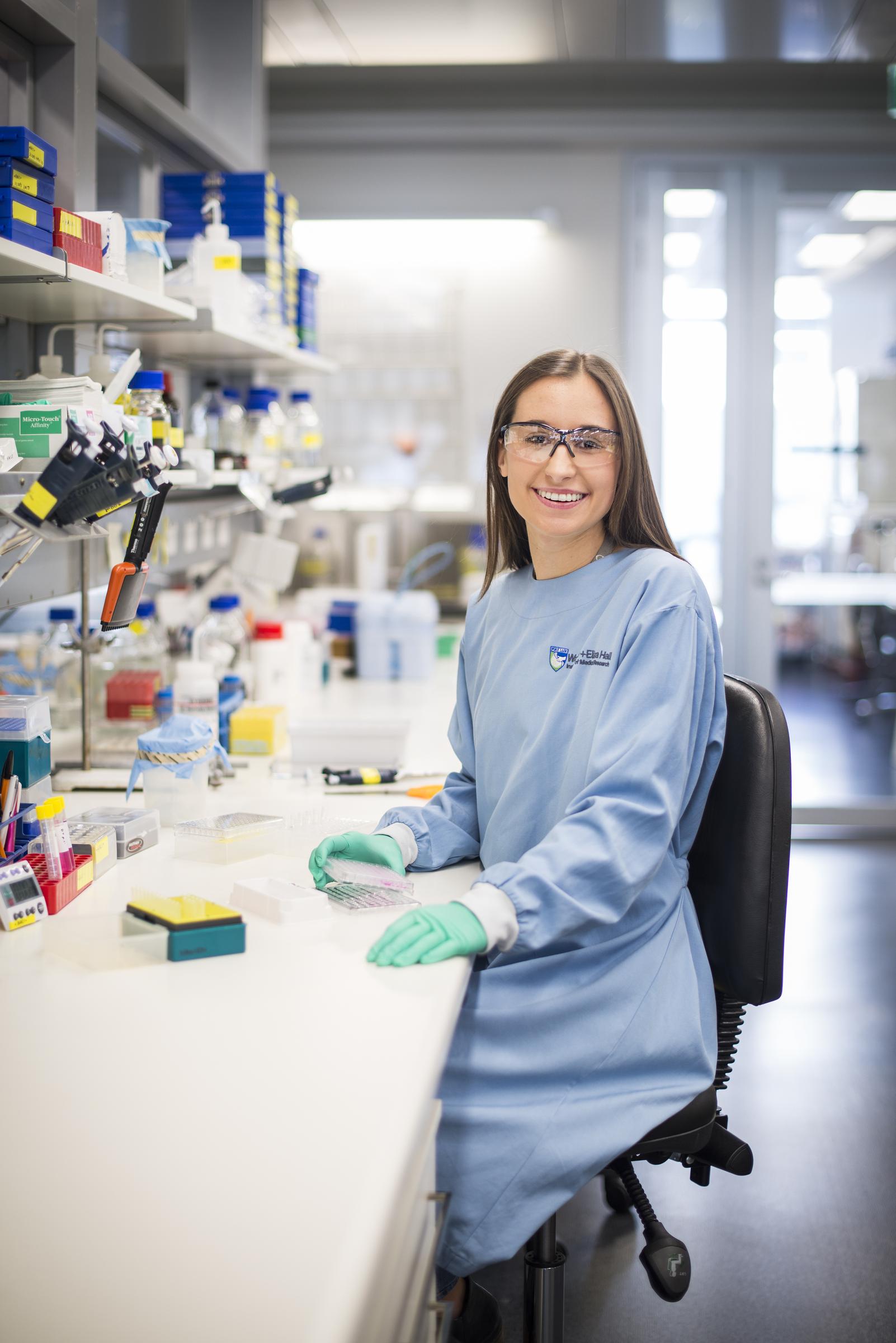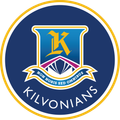Kilvonian Profiles

Halina Pietrzak
Q: Tell us a little bit about yourself.
A: My name is Halina Pietrzak but after many years playing hockey, I usually go by “Hali” because its quicker to yell out on the pitch. I live in Parkville, near Melbourne University, and even nearer to the zoo, where I pop in to visit my furry favourites whenever I have the time. I work at the Walter and Eliza Hall Institute of medical research, where I am currently doing my PhD.
Q: What year did you finish at Kilvington?
A: I was part of the graduating class of 2013 - really hard to believe that this was six years ago now...
Q: What have you been up to since leaving Kilvington?
A: I went to The University of Melbourne and studied a Bachelor of Science majoring in immunology and microbiology (2014-2016) followed by an Honours year (2017) at the Walter and Eliza Hall Institute of Medical Research (WEHI). Currently, I am a second year PhD student in medical biology, immunology and parasitology (2018 - until the near future!). My research focusses on understanding how malaria infection prevents the proper development of long-lived, protective immune responses.
Q: What is your favourite memory of Kilvington?
A: An absolute standout was VCE Legal Studies class with Mr Clement, not just because he made us crepes and hot chocolate in double periods, but because he was a lovely, supportive teacher who made our job as students easy - studying Legal was an absolute pleasure and took the sting out of Year 12 stress. Also, he organised a great Canberra trip for us, where we met the Governor General (Quentin Bryce) on the stairs of Government House and just started chatting.
Q: Did you end up where you expected you would when you finished school?
A: In many ways – yes. I developed an early passion for science, biology in particular, and maintained this enthusiasm throughout my years at Kilvington. I actually still remember the first time I walked into a science lab at school (the one near the sports courts) and how I was instantly enthralled with the concept of working in a lab. I proceeded to go home and tell my parents that I was going to be a scientist... As with everything, first impressions seem funny when I look back now - but on good science days I still get that feeling of initial excitement I had all those years ago in Year 7 science at Kilvington. With regards to my specific area of research, I cannot say that I expected to end up here - my focus came about from my interest in specific subjects at university, as well as a bit of luck.
Q: How did your time at Kilvington prepare you for what you’re doing now?
A: Kilvington provided me with a friendly and supportive learning environment where I was able to develop not only academic skills, but was given various opportunities to master other critical abilities - to be an effective leader, for example, and how to communicate ideas and to motivate others. These fundamental skills, nurtured at Kilvington, have given me a real world advantage again and again – in particular, fluency in public speaking.
I fondly remember the support, guidance and encouragement of Kilvington and the way we were always reminded that we, as individuals, would all play a role in the wider world.
Q: What have been some of the biggest challenges you’ve had to face to get where you are now?
A: As is true in the majority of careers, science, and medical research specifically, is highly competitive. To keep pushing forward has required a lot of hard work and dedication, and sometimes the ability to dig deep and find some self-belief. Some of the hardest times (that have appeared again and again; in year 12, in my undergraduate years and now in my PhD) are those when you feel firstly, mentally exhausted or stressed and, secondly, like you might not be capable of achieving your goals
Q: What advice would you give to others who might be faced with similar obstacles?
A: Following on from my previous answer, I would say that these feelings of doubt are completely natural and, unfortunately, something that you just have to learn to overcome. Once you get through those really stressful times, this is when you feel you have achieved the most. This gives you strength and confidence to face the next hurdle, feeling more confident in your ability to get things done under pressure. This process also becomes easier with time. Make sure you take time to look after and be kind to yourself, and have a solid support network to reassure you and tell you that everything will be ok (which it always will be). If you are passionate about a particular career path, then follow it and don’t question your abilities - hard work will get you where you want to be.
Q: What has been your biggest highlight so far?
A: I have thoroughly enjoyed my entire tertiary university experience- but the most exciting thing I’ve done so far has probably been attending an Immunology Course at the University of Hong Kong in December last year. This course is run by the Pasteur Institute; a non-profit foundation that undertakes really exciting research into the prevention and treatment of various infectious diseases all over the world. Travelling overseas to meet like-minded students/scientists and to be taught by global experts was a humbling experience. It showed me how special it is to be part of a community of people who are joined together not by culture, country or faith, but by progress and discovery. I also really enjoyed the fact that the majority of “Contagion” was filmed in Hong Kong and I could practically feel pandemics springing up in the streets around us…
Q: What excites you about the future?
A: Aside from finishing my PhD and (finally) not being a student anymore, I am excited about where science will take me. Until now I have had a clearly defined idea of what my career would be - becoming a scientist to study infectious disease. Now I am on that trajectory, I can see that ‘the more you know, the more you don’t know’ and that I absolutely don’t know where my interest in science will take me. I am working in a research area with unlimited details and pathways. I started studying malaria essentially by chance, and while I am happy where I am, it is interesting to ponder which infection might catch my attention next, or what new opportunity may come my way.

